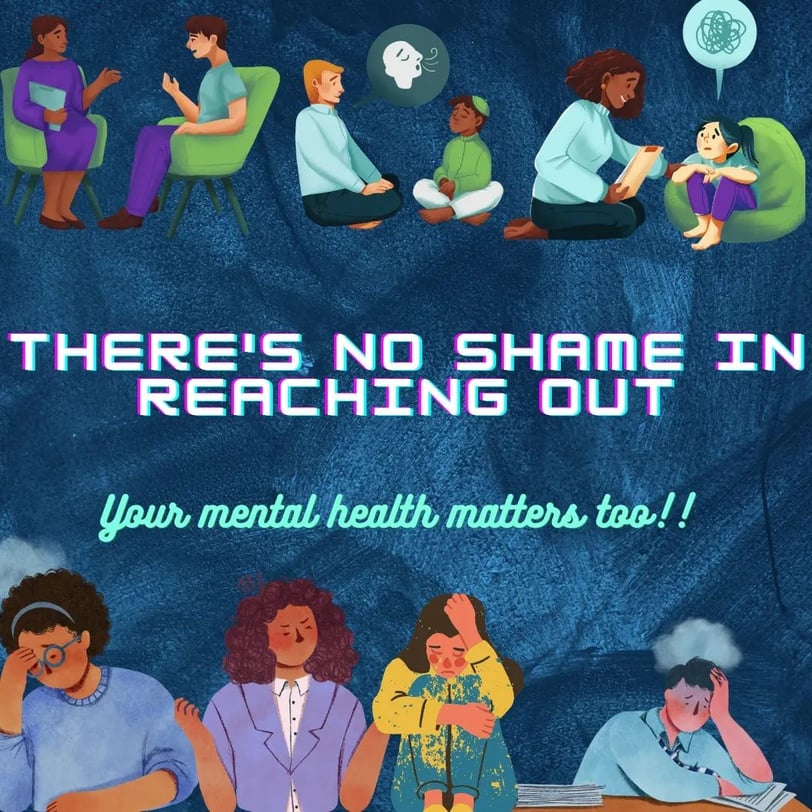Let's Talk Mental Health
Learn about mental health, avoid stigma, and support others
When you think about your health, what is the first thing that comes to mind?
For most of us, it’s probably our physical health.
The common questions that come to our mind are:
Are we eating healthy?
Are we exercising regularly?
Are we feeling tired?
Are we ill?
Do our joints ache?
Have we scheduled our annual check-up?
Nevertheless, these questions are important, but another important question we need to ask ourselves should be: How is our mental health?
Our mental health has a tremendous impact on our overall health and well-being. It affects how we think, feel and behave.
It influences our choices, actions and how we relate to others. Good mental health can help us cope with stress, succeed in our professional lives, more effectively recover from difficult situations and live fulfilling lives.
We need to understand that maintaining good mental health can often be a challenge. Mental health conditions are quite common.
If you are struggling to maintain good mental health, you are definitely not alone.
It’s important to know that it is okay to speak up and ask for help if you’re suffering from a mental health condition.
We need to break the stigma that revolves around mental health.
The benefits of seeking professional help and treatment can make a positive difference in your overall health and quality of life.
In addition to professional care, there are some steps you can take at home and in life to improve mental wellness:
Get regular exercise. Exercise prevents muscle tension, releases endorphins that help you feel relaxed, and builds strength and endurance which can boost your confidence.
Eat healthy. Limit processed and high-fat foods. These foods contribute to lethargy and a lack of motivation, concentration and energy.
Challenge your mind. Learn a new skill or engage in a new activity. This can result in positive and healthy stimulation and promote mental wellness.
Make time for family and friends. Building and maintaining healthy relationships can go a long way towards long-term mental well-being.
Get enough sleep. A good sleep of around 7-8 hours helps your mind and body to relax. This further prevents fatigue and ensures you have the energy and positive mindset to navigate through the day ahead.
Practice mindfulness. It is important to pay attention to the present moment without judgment. This could help with reducing stress and improving well-being. A few ways to practice mindfulness like Meditation or yoga could make a difference.
Practice deep breathing. Deep breathing gives your brain and muscles necessary oxygen and can help keep your mind and body healthy.
One very important step to remember however is to talk to a mental health professional if you are struggling with maintaining good mental health.
Your mental health is a valuable and vital part of your well-being. You must make sure that you are giving it the care and attention it needs.
You can then be your best self and enjoy all that life has to offer.



